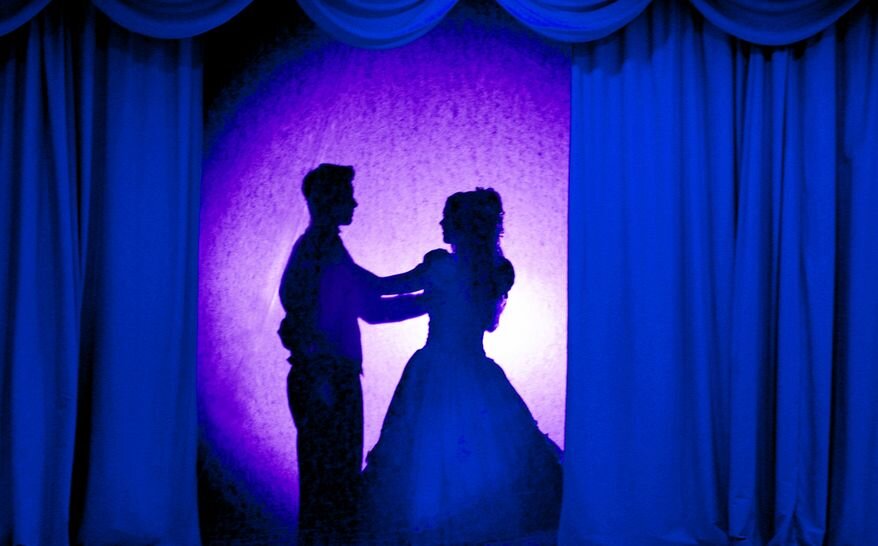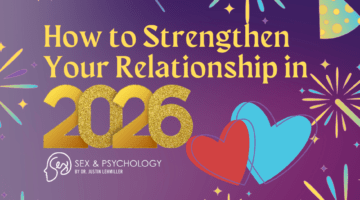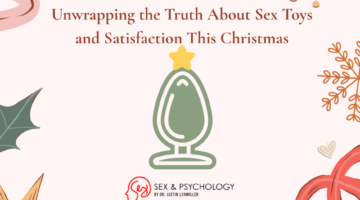The Difference Between a ‘Hopeless Romantic’ and a ‘Hopeful Romantic’
March 22, 2021 by Justin Lehmiller
What does it mean to be a “hopeless romantic?” You can find countless media articles talking about people’s opinions on this, but from a scientific perspective, what it really refers to is an implicit theory that some people hold about what makes for a good relationship. Specifically, it refers to a belief in relationship destiny.
Destiny belief is defined as “the belief that potential relationship partners are either compatible or they are not” [1]. People who hold this belief think that they need only minimal information about another person in order to know whether they click and whether they can make a relationship work. In other words, it’s either meant to be, or it isn’t. There’s no middle ground or uncertainty.
This belief system involves seeing love through a very romanticized lens—one that has qualities akin to what you might hear about in a fairy tale. For example, someone with strong destiny beliefs is likely to believe strongly in the idea of “love at first sight” and that there is one perfect partner out there for them who will suddenly appear and sweep them off of their feet, with a “happily ever after” ending.
If you’ve ever fantasized about what it would be like to live in a romantic fairy tale, you’re not alone—it’s perfectly normal to find this idea arousing or appealing. There’s also nothing wrong with trying to incorporate some degree of romanticism into your dating and intimate life, such as going all out to make an engagement, wedding, or honeymoon feel extraordinarily special.
However, where this kind of belief system can potentially become a problem is when it is carried to the extreme. For example, if you think that there is only one “right” person for you in the entire world and that everything will work out easily once you meet them, you might very well pass up on a lot of great opportunities.
In fact, what we see in the research is that people with strong destiny beliefs tend to break up faster and have a harder time making relationships last because, rather than working through problems that might arise, they jump ship and take it as a sign that things weren’t meant to be [2]. As a result, they never really learn how to manage and overcome conflict, with is pretty much inevitable in relationships. So hopeless romantics run the risk of not finding true happiness because their expectations and standards are unrealistic and they don’t learn the skills necessary for keeping a relationship going.
However, not everyone who is in love with the idea of being in love falls into the “hopeless romantic” category. It’s also possible to be a “hopeful romantic,” which involves sharing some belief in relationship destiny, but also having what are known as growth beliefs. Rather than seeing conflict as a sign that it’s the wrong relationship, someone with growth beliefs views this as a challenge or obstacle to be overcome that will only make the relationship stronger in the end.
Likewise, whereas a hopeless romantic may look at a decline in passion over time (which is totally normal, by the way!) as a sign of a poor match and start plotting an exit strategy, a hopeful romantic might view this as a sign that it’s time to put some effort into their bedroom game to get the spark back—and keep it going for the long haul.
In short, someone who is high in destiny beliefs but low in growth beliefs would likely fall into the hopeless romantic category, whereas someone who as high in both belief sets would likely fall into the hopeful romantic category. Of course, it’s also possible to be low in both types of beliefs, which I would characterize as being a relationship pessimist. Alternatively, you can be low on destiny and high on growth, which means you think that any relationship can potentially work if you’re willing to put in the effort—I’d characterize this as being a relationship optimist or a relationship pragmatist.
As you can see, there are a lot of different ways to view love and relationships. And it’s not inherently problematic to view love through a romanticized lens. Just remember that one of the main keys to success is having a growth mindset and recognizing that good relationships don’t typically come easily. As with everything else in life, a good relationship requires some work and effort to maintain.
Want to learn more about Sex and Psychology? Click here for more from the blog or here to listen to the podcast. Follow Sex and Psychology on Facebook, Twitter (@JustinLehmiller), or Reddit to receive updates. You can also follow Dr. Lehmiller on YouTube and Instagram.
[1] Knee, C. R., Patrick, H., & Lonsbary, C. (2003). Implicit theories of relationships: Orientations toward evaluation and cultivation. Personality and Social Psychology Review, 7(1), 41-55.
[2] Le, B., Dove, N. L., Agnew, C. R., Korn, M. S., & Mutso, A. A. (2010). Predicting nonmarital romantic relationship dissolution: A meta‐analytic synthesis. Personal Relationships, 17(3), 377-390.
Image Source: 123RF/aija444

Dr. Justin Lehmiller
Founder & Owner of Sex and PsychologyDr. Justin Lehmiller is a social psychologist and Research Fellow at The Kinsey Institute. He runs the Sex and Psychology blog and podcast and is author of the popular book Tell Me What You Want. Dr. Lehmiller is an award-winning educator, and a prolific researcher who has published more than 50 academic works.
Read full bio >


